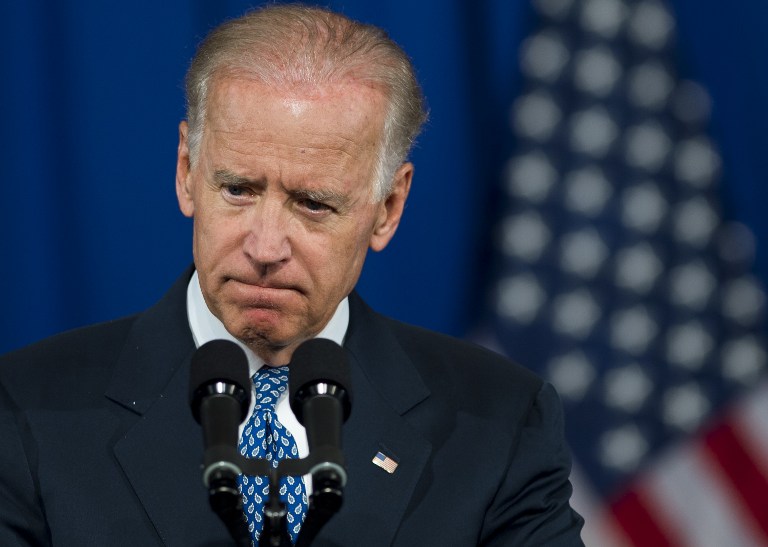SUMMARY
This is AI generated summarization, which may have errors. For context, always refer to the full article.

NEW DELHI, India – US Vice President Joe Biden was due in India Monday, July 22, at the start of a four-day visit designed to revive momentum in flagging diplomatic ties and fire up bilateral trade.
Biden, the first vice president to visit India in three decades, will meet senior leaders including Prime Minister Manmohan Singh in New Delhi before heading to the financial hub Mumbai to deliver a keynote speech on the economy.
In a briefing to journalists ahead of his departure, a senior US official said Washington and Delhi shared common goals on a range of defense and security issues.
“I think he (Biden) will point out that increasingly United States and India are coming into strategic convergence in terms of what our key interests are and how we can pursue them,” said the official, who spoke on condition of anonymity.
The announcement of Biden’s visit was made during a trip to India last month by Secretary of State John Kerry, who sought to assuage Indian fears about the aftermath of next year’s withdrawal of US troops from Afghanistan.
India, which has spent more than two billion dollars of aid in Afghanistan, fears any return of the Taliban, hardline Islamists who were strong allies of Pakistan before being toppled in 2001.
Nascent talks between the US and Taliban were due to start last month after the Islamists opened an office in Doha, but they collapsed before even getting off the ground.
In his briefing, the official said Biden would reiterate that the US will not back any peace process unless it sees the Taliban “breaking with Al-Qaeda, renouncing violence and abiding by the terms of the Afghan constitution”.
“The United States has been very clear on these necessary outcomes, and remains clear on them in all of our dealings, and that will be a feature of his consultations with the Indians on the peace process question when he is in Delhi,” he said.
On Wednesday, July 24, Biden is set to fly to Mumbai where he is expected to hold a roundtable with business leaders and press for stronger intellectual property protection.
While bilateral trade has grown in recent years, there is still widespread frustration among US business leaders over what they see as unfair trading practices.
Among the points of contention is India’s championing of generic drugs — which advocates say save lives in poor nations — despite protests from Western drug firms.
India in turn has been alarmed by proposals in the US Congress to curb visas for high-tech workers.
The US official said that Biden wanted to help spark a major upturn in trade levels which would be the main theme of a speech at the Mumbai stock exchange.
“US-India trade has reached nearly $100 billion, but there is no reason why it can’t be five times that much. Over the last 13 years, it has quintupled, and it should quintuple again,” the official said.
India’s Finance Minister P. Chidambaram and Commerce Minister Anand Sharma were both in Washington last week to pitch for greater investment and discuss India’s readiness to open talks on a bilateral investment treaty.
“Economic engagement in both trade and investment, though robust, is well below potential, given the opportunities a growing economy like India offers and the opportunities in the largest economy of the United States,” Sharma said.
Biden will be the most senior administration official to visit India since President Barack Obama visited in 2010.
While the US has been among the world powers calling for India to be given a permanent seat at the UN Security Council, observers nevertheless detect a sense of drift in ties between the world’s two largest democracies.
“India is a natural ally of the US but… relations require greasing occasionally because insecurities have crept in, especially on the Indian side,” Subhash Agrawal, of the Delhi-based think tank India Focus, told AFP.
“The vice president’s visit is going to clear the air and create confidence on both sides and help rebuild the momentum that was lost after Obama’s visit.”
Biden will head from India to Singapore on Thursday, July 25, where officials say he will tackle tensions over the disputed South China Sea. – Rappler.com
Add a comment
How does this make you feel?
There are no comments yet. Add your comment to start the conversation.